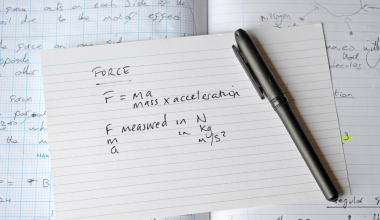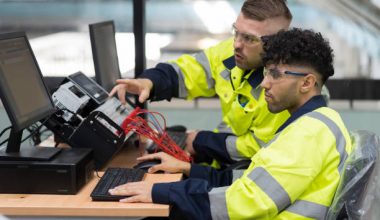While working on a curriculum, knowing what to learn when homeschooling your child or yourself can be tough. One of the most challenging aspects is what you are legally compelled to learn. This includes whether you must take GCSE or other similar exams when homeschooling.
Statistics released by the UK government reveal that as of the census in autumn 2023, a total estimate of 92,000 children are homeschooled or what is officially referred to as Elective Home Education (EHE). These stats include adjustments made for non-response and based on the figure reported by 95% of local authorities.
Finding easy, straightforward instruction about public exams and homeschooled students might be challenging amid the stress of grasping what you need to do. However, this article will explain the exam standards for homeschooled students and answer any questions concerning GCSEs for private applicants.
Table of contents
- What is the GCSE?
- Do you have to do GCSEs if you are homeschooled?
- How do you do your GCSEs if you are homeschooled?
- Step 1: Understand the Requirements
- Step 2: Choose Your Subjects
- Step 3: Gather Resources
- Step 4: Set Up a Study Schedule
- Step 5: Study and Prepare
- Step 6: Practical Assessments or Coursework
- Step 7: Mock Examinations
- Step 8: Register for Exams
- Step 9: Exam Preparation
- Step 10: Take the Exams
- Step 11: Await Results
- Step 12: Progression and Future Plans
- What age can you take GCSEs for homeschoolers?
- What is the cost of Homeschooling your child in the UK?
- Do you have to pay for exams if you are homeschooled?
- Do you have to follow the national curriculum if you are homeschooled?
- Conclusion
- Frequently Asked Questions
- References
- Recommendations
What is the GCSE?
The General Certificate of Secondary Education (GCSE) is an academic qualification. It is usually for students in the United Kingdom and some other countries. GCSEs assess a student’s knowledge, skills, and understanding of various subjects.
These qualifications are essential in the educational journey and often serve as prerequisites for further education, such as A-levels (Advanced Level) or vocational courses.
GCSEs cover a variety of subjects, including core subjects like mathematics, English language, and science, as well as optional subjects like history, geography, languages, arts, and more. Students typically choose the subjects they want to study based on their interests, career aspirations, and educational goals.
The grades awarded for GCSEs range from 9 to 1, with 9 being the highest grade and 1 the lowest. Achieving higher rates (7 to 9) is often a requirement for admission to selective colleges or advanced-level studies.
Check out: Latest Purdue Acceptance Rate By Major In 2024
Do you have to do GCSEs if you are homeschooled?
No, homeschooled students in the UK do not legally have to take GCSEs. Homeschooling provides families with the flexibility to design their educational curriculum, and this includes deciding whether to pursue GCSE qualifications or not.
However, many homeschooled students and their families choose to have their children sit for GCSE exams for various reasons, such as providing recognized qualifications for college admissions or future job opportunities.
While homeschooled students do not have to take GCSEs, if they plan to pursue higher education at universities or colleges, having GCSEs, or equivalent qualifications can be advantageous as they might be part of the admission requirements.
Additionally, some families opt for alternative qualifications like International GCSEs (IGCSEs) or vocational qualifications to cater to their child’s strengths and interests. Ultimately, the decision regarding GCSEs for homeschooled students is based on the family’s educational goals and the student’s aspirations.
Read also: 10 Best Cognitive Science Colleges 2024 | Cost & Scholarship
How do you do your GCSEs if you are homeschooled?
Here is a Step-by-Step Guide:
Step 1: Understand the Requirements
Familiarize yourself with the GCSE subjects you are interested in and the examination boards that offer them. Each examination board may have slightly different syllabi and assessment formats.
Step 2: Choose Your Subjects
Select the GCSE subjects you want to study based on your interests, future goals, and any prerequisites for higher education or careers. Consider subjects you’re passionate about and subjects that align with your strengths.
Step 3: Gather Resources
Collect appropriate learning resources such as textbooks, online courses, educational websites, and study guides for each chosen subject. Some resources are for independent learners or homeschoolers.
Check out: 10 Best Landscape Architecture Colleges 2024 | Scholarships
Step 4: Set Up a Study Schedule
Create a study schedule that outlines your daily or weekly study sessions for each subject. Make sure to allocate sufficient time for learning, practicing, and revising the material.
Step 5: Study and Prepare
Engage in thorough studying and preparation for each subject. Work through the syllabus, complete exercises, assignments, and practice questions, and review the material regularly.
Step 6: Practical Assessments or Coursework
For subjects with practical or coursework components, plan and complete the required tasks following the guidelines provided by the examination board.
Step 7: Mock Examinations
As your exam date approaches, consider taking mock examinations to assess your readiness and identify areas that need further improvement.
See also: What Majors Is John Hopkins Known For In 2024 | Full Guide
Step 8: Register for Exams
Contact local schools or private examination centers to inquire about registering as an external candidate for GCSE exams. They can provide information about available exam dates, fees, and deadlines for registration.
Step 9: Exam Preparation
In the weeks leading up to the exams, intensify your revision efforts. Review key concepts, practice past papers, and work on time management during exam-style conditions.
Step 10: Take the Exams
On the designated exam dates, arrive at the examination center well-prepared and on time. Follow the instructions provided by the invigilators and give your best effort during the exams.
Step 11: Await Results
After completing the exams, await your results. Examination boards typically release GCSE results in August. Depending on the chosen examination board, you can collect your results from the examination center or access them online.
Step 12: Progression and Future Plans
Use your GCSE results to inform your next steps. If you plan to pursue further education, consult the admission requirements of colleges or universities you have an interest in.
Read also: How To Study For The ACT In Less Time | 2024 Timetable, Schedules
What age can you take GCSEs for homeschoolers?
Homeschooled students in the UK can typically take GCSEs at 14 or older. Still, the exact age can vary based on individual readiness, academic progression, and the chosen subjects.
GCSEs are generally designed to be taken over two years, typically in Years 10 and 11 of traditional schooling, which corresponds to ages 14 to 16. However, homeschooled students can start their GCSE studies earlier or later, depending on their learning pace and goals.
Here are a few factors to consider:
- Readiness: Homeschooled students should have a solid foundation in the relevant subjects before starting GCSE-level studies. It’s essential to gauge the student’s readiness to handle the increased complexity and demands of the GCSE curriculum.
- Subject Choice: Different subjects might have different prerequisites and levels of difficulty.
- Personal Goals: Consider the student’s academic and career aspirations. If they plan to pursue higher education, aligning GCSE timings with university or college admission requirements is important.
- Learning Pace: Homeschooled students often have the advantage of personalized learning. Some students might be ready to tackle GCSEs earlier, while others might benefit from more time to delve deeper into foundational knowledge.
- Legal Age: There is no specific legal age for homeschooled students to take GCSEs, but they should be within the age range when students typically take these exams in traditional schools.
What is the cost of Homeschooling your child in the UK?
While a lot of families may choose to pay any amount for their child’s tuition, you may need a tighter budget, as such settling for something quite minimal. You don’t need to be a qualified teacher to homeschool with child.
This will reduce the cost for you, with only expenses for teaching resources and exam entries required.
Most people would prefer to use a tutor who will help them provide a curriculum and teaching program, thereby having just one or two hours of tuition each week. With this, the average tuition fee for a qualified teacher would be £40ph to £44ph.
Typically, for beginners, Key stages 1 and 2, will require between 8 to 16 hours each week with a tuition fee of £30 to £45ph. For Key Stage 3, GCSE, IGCSE, and A-Level, they will need about 2-3 hours per subject each week and a tuition fee of £40 to £50ph.
Do you have to pay for exams if you are homeschooled?
If you are homeschooled and wish to take GCSE exams, you will likely have to pay for the exams. The costs associated with taking GCSE exams as a homeschooled student can include several components:
- Exam Entry Fees: These are the fees charged by examination boards for each GCSE subject you have to take. The fees can vary depending on the subject and the examination board.
- Administration Fees: Some examination centers or schools might charge administration fees for registering and organizing exams for external candidates, including homeschoolers.
- Additional Costs: Depending on the subject, there might be additional costs for practical assessments, coursework moderation, and any required materials or resources.
- Late Fees: If you miss registration deadlines, examination centers might charge late fees for registering after the specified date.
- Travel Expenses: If the examination center is not located nearby, consider travel expenses for commuting to and from the center on the exam dates.
Keep in mind that while there are costs, obtaining qualifications like GCSEs can be valuable for future education and career opportunities. If the price is a concern, you might explore options such as budgeting, seeking financial assistance, or exploring alternative, more affordable qualifications.
Check out: Latest Purdue Acceptance Rate By Major In 2024
Do you have to follow the national curriculum if you are homeschooled?
Homeschooling in the UK requires you to follow the national curriculum sparingly. One of the critical advantages of homeschooling is the flexibility it offers in tailoring education to the individual needs, interests, and learning styles of the child.
While the national curriculum can serve as a helpful guideline and resource, homeschooling families have the autonomy to design their educational approach.
See also: 15 Best Game and Interactive Media Design Colleges 2024
Conclusion
The decision to pursue GCSEs is a choice that depends on individual circumstances and goals. While homeschooled students do not have to take GCSEs, many families incorporate them into their educational journey to provide standardized recognition and expand future opportunities.
Read also: 10 Best Rice University Majors For College Students In 2024
Frequently Asked Questions
Homeschooled students are not mandated by law to take GCSEs in the UK. However, many families choose to have their homeschooled children sit for GCSEs to provide them with recognized qualifications for further education or employment.
Homeschooled students can prepare for GCSEs through various means. They can opt for independent study using textbooks, online resources, and educational platforms.
Yes, in most cases, homeschooled students can take GCSE exams alongside their traditionally schooled peers. They can register for exams through examination centers, including local schools or private examination centers.
Taking GCSEs can offer several benefits for homeschooled students. These qualifications provide a recognized standard for academic achievement, which can be important for college admissions and future job opportunities.
Yes, there are alternatives to GCSEs for homeschooled students. Some families opt for International GCSEs (IGCSEs).
References
- thinkstudent.co.uk– homeschooling GCSE
- online-learning-college.com– homeschooling GCSE
- adventuretravelfamily.co.uk– homeschooled GCSE





